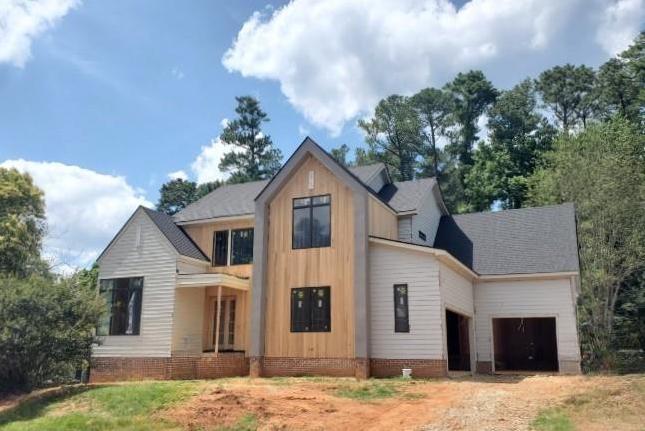Exploring the world of real estate investment on a limited budget can be challenging, but it's not impossible.
In this blog post, we will share essential tips and strategies for low-budget investors looking to enter the real estate market.
Discover how to invest in real estate with little money and build a successful real estate portfolio.
1. Understanding Your Budget:
The first step in real estate investment is to assess your financial situation and determine the amount you can comfortably invest. It's important to be realistic and consider your financial goals. While you may not have a large sum of money to start with, there are still opportunities for low-budget investors.
Explore different financing options such as loans, partnerships, or government programs specifically designed for low-budget investors. By setting a budget that aligns with your financial goals, you can make informed decisions and avoid overextending yourself.
2. Researching the Market:
Thorough market research is crucial for low-budget investors. Start by identifying areas with affordable properties and potential for growth. Look for neighbourhoods that may be undervalued but show signs of development and improvement.
Analyze market trends, rental demand, and local amenities to find promising investment opportunities within your budget. Keep an eye out for up-and-coming neighbourhoods and emerging markets where property values are projected to rise.
With careful research, you can identify areas that offer a good return on investment within your budget constraints.
3. Networking and Building Connections:
Building a network of real estate professionals, fellow investors, and industry experts is invaluable for low-budget investors. By connecting with experienced individuals, you can gain valuable insights and learn from their experiences.
Attend local real estate events, join online communities, and participate in networking activities to expand your contacts. Seek guidance from mentors who have successfully invested in real estate with limited funds.
Networking can open doors to potential partnerships, joint ventures, and access to off-market deals that may not be available through traditional channels.
4. Creative Financing Options:
One of the biggest challenges for low-budget investors is finding financing options that suit their needs. Explore creative financing strategies such as seller financing, lease options, or partnerships to acquire properties.
Seller financing allows you to negotiate directly with the property owner, eliminating the need for traditional bank loans. Lease options provide the opportunity to rent a property with the option to buy at a later date, giving you time to save and build equity.
Consider investing in real estate investment trusts (REITs) or crowdfunding platforms that cater specifically to low-budget investors. These options can provide diversification and access to real estate investments with lower capital requirements.
5. House Hacking:
House hacking is a popular strategy for low-budget investors. It involves purchasing a multifamily property and living in one unit while renting out the others.
The rental income from the additional units can help cover your mortgage payments, allowing you to build equity and save money. House hacking can be an effective way to jumpstart your real estate investment journey while minimizing living expenses.
It provides an opportunity to experience firsthand the challenges and rewards of being a landlord while living on the same property.
6. Sweat Equity and DIY Approach:
Another strategy for low-budget investors is to leverage their skills and knowledge to add value to properties through sweat equity. By learning basic renovation and maintenance skills, you can reduce costs and increase the value of your investment.
Look for properties in need of cosmetic improvements that you can handle yourself, saving money on labour costs. However, it's important to know your limits and not take on projects that are beyond your skill level.
DIY renovations can be a great way to stretch your budget, but always ensure that the necessary permits and inspections are obtained to ensure compliance with local regulations.
7. Online Real Estate Platforms:
In today's digital age, online real estate platforms have become a game-changer for low-budget investors. These platforms provide a cost-effective and efficient way to connect with buyers and sellers, offering a wide range of properties to choose from. As a low-budget investor, consider opening an online real estate platform like Easydigz to start buying and selling properties online and earn a good commission. You can list your property on Easydigz at a flat rate to get more out of the property.
8. Long-Term Investment Strategy:
When investing with a limited budget, it's essential to adopt a long-term perspective. Real estate investment is not a get-rich-quick scheme, but rather a gradual process of building wealth over time. Consider the potential for property appreciation over the long term and focus on building a sustainable real estate portfolio. Some of the most common long-term investment strategies include:
i- Buy-and-Hold Approach:
This involves purchasing properties with the intention of holding onto them for an extended period, allowing them to appreciate in value over time. With careful research and a focus on cash flow, you can identify properties that have the potential to generate consistent rental income while also increasing in value.
ii- Fix and Flip:
It involves purchasing properties needing renovation or repairs, improving them, and selling them for a profit. This strategy requires understanding market trends, property values, and renovation costs. It can be a more active and hands-on approach to real estate investment and yield significant returns. EasyDigz offers tips and recommendations for home improvements that can increase your home's value for a swift sale.
iii- Rental Properties:
Rental properties are another popular long-term investment option. By purchasing properties that can generate consistent rental income, you can build a steady stream of passive income over time. Look for properties in desirable locations with high rental demand. Consider factors such as proximity to amenities, transportation, schools, and job opportunities. Additionally, be sure to conduct thorough tenant screening to minimize the risk of rental defaults or property damage.
Conclusion:
Real estate investment is not exclusive to high-budget individuals. With the right strategies and a disciplined approach, low-budget investors can enter the real estate market and build a successful portfolio.
Understanding your budget, conducting thorough market research, networking, exploring creative financing options, utilizing house hacking, leveraging sweat equity, and adopting a long-term investment strategy is key to making the most of limited funds.
While real estate investment requires patience, persistence, and careful planning, it can provide a pathway to financial independence and wealth creation. By following these tips and strategies, low-budget investors can navigate the real estate landscape successfully.
Remember, adaptability and continuous learning are essential in this dynamic market. Start small, be diligent, and watch your real estate portfolio grow over time.








